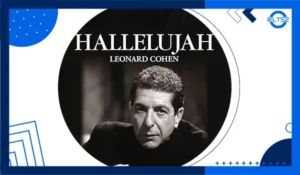نمونه سوالات اسپیکینگ آیلتس درباره موسیقی (نمره 9)
IELTS Speaking Questions with Band 9 Answers about Music
در این بخش بیش از 20 نمونه سوال اسپیکینگ آیلتس نمره 9 از آخرین سوالات گزارش شده از سنترهای ایرانی و خارجی برگزار کننده آیلتس مربوط به پارت 1، 2 و 3 درباره موضوع “موسیقی” را برای شما فهرست کرده ایم. در ادامه همچنین نکات گرامری، لغات و دلایل دریافت نمره 9 را توضیح داده ایم. 1000 نمونه سوالات اسپیکینگ آیلتس با جواب PDF پارت 1 2 3 پیشنهاد بعدی ما به شما عزیزان است.
نمونه سوالات اسپیکینگ آیلتس درباره موضوع موسیقی (پارت اول)
Questions and Model Answers (Band 9) for IELTS Speaking Part 1 – Topic: Music
1. Do you like listening to music?
Absolutely, I enjoy listening to music as it allows me to relax and escape from daily stresses. Music has the power to evoke emotions and create a calming atmosphere. I particularly enjoy genres like classical and jazz for their soothing melodies. Whether I’m commuting or studying, music is always a companion that enhances my mood and concentration. It also helps me connect with different cultures through unique rhythms and instruments. Overall, music plays an essential role in my life, offering both entertainment and emotional support in various situations.
2. What kind of music do you usually listen to?
I usually listen to a mix of genres, but I’m particularly drawn to classical music and soft rock. Classical music helps me concentrate while working or studying, as its intricate compositions are both calming and inspiring. On the other hand, soft rock energizes me during workouts or long drives. Occasionally, I explore international music to discover new sounds and cultures. I appreciate music that tells a story or evokes strong emotions, regardless of the genre. Ultimately, my preferences depend on my mood and the situation, making my playlist quite diverse.
3. Is music important in your culture?
Yes, music holds a significant place in my culture as it reflects our traditions and values. Folk music, in particular, is a rich source of history, often narrating tales of heroism and love. It’s commonly performed at festivals and celebrations, bringing people together in a joyful atmosphere. Additionally, modern music has gained popularity, blending traditional elements with contemporary styles. This fusion highlights our evolving cultural identity while preserving our roots. Overall, music serves as both a medium of entertainment and a vital connection to our heritage.
4. Do you prefer live music or recorded music?
I enjoy both live and recorded music, but I prefer live music for its energy and spontaneity. Attending a concert offers a unique experience, as the audience’s enthusiasm and the performers’ interaction create an unforgettable atmosphere. Live music also showcases the artist’s true talent, free from studio enhancements. However, recorded music is more convenient for daily life, allowing me to enjoy my favorite songs anytime. Each has its charm, but the emotional impact of live performances makes them particularly special for me.
5. Can you play any musical instruments?
Yes, I’ve been playing the piano since childhood. It’s a rewarding hobby that allows me to express myself creatively and unwind after a busy day. Learning the piano has taught me discipline and patience, as mastering complex pieces requires consistent practice. I enjoy experimenting with different genres, from classical to modern tunes. Playing an instrument also connects me with others who share a passion for music. While I’m not a professional, the piano remains an essential part of my personal and creative development.
6. How often do you listen to music?
I listen to music daily, as it’s an integral part of my routine. Whether I’m starting my morning with upbeat tracks or winding down with calming melodies at night, music enhances my day. During work or study sessions, I prefer instrumental tracks to maintain focus. On weekends, I dedicate more time to exploring new artists and genres. Music provides a constant source of inspiration and comfort, making it an essential aspect of my lifestyle.
7. Do you think music has changed over the years?
Yes, music has evolved significantly over the years, reflecting social, technological, and cultural changes. Traditional genres have blended with modern styles, creating new forms like electronic and fusion music. Advances in technology have revolutionized production and distribution, making music more accessible worldwide. Additionally, the themes in music have shifted to address contemporary issues, resonating with younger audiences. Despite these changes, music’s core purpose—to connect, inspire, and entertain—remains unchanged, showcasing its timeless appeal.
8. Do you enjoy singing?
Yes, I enjoy singing, even though I’m not particularly skilled at it. Singing is a fun and relaxing way to express emotions and connect with others. Whether I’m singing along to my favorite songs or humming a tune, it always lifts my spirits. Occasionally, I sing with friends during gatherings, which creates memorable and joyful moments. While I don’t sing professionally, I appreciate how it brings happiness and strengthens social bonds.
9. What role does music play in your daily life?
Music plays a central role in my daily life by setting the tone for various activities. In the morning, it energizes me, while in the evening, it helps me relax. During work, instrumental music enhances my concentration, and during exercise, upbeat tracks keep me motivated. Music also serves as a creative outlet and a source of inspiration, making even mundane tasks more enjoyable. It’s a versatile companion that enriches every aspect of my routine.
10. Has your taste in music changed over the years?
Yes, my taste in music has evolved significantly over the years. During my teenage years, I preferred pop and rock, drawn to their catchy rhythms and relatable lyrics. As I grew older, I developed an appreciation for classical and jazz, valuing their complexity and emotional depth. Exposure to diverse cultures also expanded my interest in world music. While I still enjoy my old favorites, I now seek music that challenges me intellectually and emotionally, reflecting my changing perspectives and experiences.
نمونه سوال اسپیکینگ آیلتس درباره موضوع موسیقی (پارت دوم)
در اینجا یک سمپل از نمونه سوالات اسپیکینگ آیلتس درباره موسیقی برای پارت 2 را میبینیم. در این بخش 1 دقیقه زمان داریم برای ارایه 2 دقیقه پاسخ آماده شویم. پاسخ ما از نظر گرامر، لغات، تلفظ و روان بودن مورد ارزیابی قرار میگیرد.
IELTS Speaking Part 2 – Music
Describe a song or piece of music that is special to you.
You should say:
- what the song or piece of music is
- where and when you first heard it
- how it makes you feel
and explain why it is special to you.
Model Answer (250 Words, Band 9)
One song that holds a special place in my heart is “Imagine” by John Lennon. I first heard it during my high school years when my music teacher played it in class as part of a lesson on influential songs. From the very first note, I was captivated by its simplicity and profound message of peace and unity.
The melody is gentle yet haunting, and Lennon’s voice carries a sense of sincerity that resonates deeply. Every time I listen to it, I feel a mix of hope and introspection. The lyrics challenge listeners to imagine a world without borders, possessions, or conflicts, which feels both utopian and deeply thought-provoking. It inspires me to reflect on my own values and consider how I can contribute to creating a better society.
What makes this song truly special is its timeless relevance. Despite being written decades ago, its message continues to resonate with people worldwide, transcending cultural and generational boundaries. It has been performed at countless global events, symbolizing hope during times of adversity.
Personally, this song reminds me of the importance of dreaming big and staying optimistic, even in the face of challenges. Whenever I feel disheartened by the state of the world, “Imagine” serves as a reminder that small individual efforts, when combined, can lead to significant change. It’s not just a song—it’s a call to action and a source of endless inspiration for me.

نمونه سوالات اسپیکینگ آیلتس درباره موضوع موسیقی (پارت سوم)
در اینجا نمونه سوالات اسپیکینگ آیلتس درباره موضوع موسیقی را با هم میبینیم. در این پارت سوالات دشوار تر هستند و شرکت کننده باید خود را برای ارایه پاسخ هایی طولانی تر آماده کند.
Questions and Model Answers (Band 9) for IELTS Speaking Part 3 – Topic: Music
1. How does music influence people’s emotions?
Music has a profound impact on emotions by stimulating the brain’s reward system. Certain melodies evoke happiness, while others can trigger nostalgia or sadness. For instance, upbeat songs often energize and uplift listeners, whereas slower tunes may create a reflective or melancholic mood. Lyrics also play a significant role, connecting deeply with personal experiences. Scientifically, music stimulates dopamine production, enhancing feelings of joy or relaxation. Its ability to communicate emotions beyond words makes it a universal language. Overall, music’s power to shape mood and evoke emotional responses is unparalleled in its depth and effectiveness.
2. Why do you think people have different musical preferences?
Musical preferences are shaped by cultural background, personal experiences, and individual personality traits. People often connect with genres that resonate with their emotions or reflect their upbringing. For example, someone raised in a country with rich folk traditions might prefer traditional music, while another exposed to pop culture may favor contemporary genres. Personality also plays a role—extroverts often enjoy energetic music, whereas introverts may prefer soothing melodies. Social influences, like friends or media, further shape tastes. Ultimately, these preferences are a blend of cultural, psychological, and social factors, making them unique to each individual.
3. Should music education be a part of the school curriculum?
Yes, music education should be an integral part of the school curriculum because it enhances cognitive, emotional, and social skills. Studies show that learning music improves memory, concentration, and problem-solving abilities. It also fosters creativity and self-expression, helping students manage emotions effectively. Group activities, like choir or band, teach teamwork and communication. Furthermore, exposure to music introduces students to diverse cultures, promoting inclusivity. While some argue that music isn’t as essential as core subjects, its role in holistic development makes it invaluable for nurturing well-rounded individuals.
4. How does music unite people from different cultures?
Music transcends language and cultural barriers, acting as a universal medium that connects people. For instance, global music festivals like Glastonbury or Coachella bring together audiences from various backgrounds to celebrate shared interests. Collaborative projects between international artists, such as K-pop and Western music crossovers, also demonstrate how music bridges gaps. Additionally, traditional instruments and melodies often spark curiosity and appreciation among listeners unfamiliar with a particular culture. By promoting understanding and mutual respect, music fosters global unity and celebrates diversity.
5. Do you think technology has had a positive or negative impact on the music industry?
Technology has had both positive and negative impacts on the music industry. On the positive side, streaming platforms like Spotify and YouTube have made music widely accessible, allowing artists to reach global audiences. Advanced production tools have also enabled musicians to experiment creatively. However, the industry faces challenges like declining revenue from physical sales and the devaluation of music due to piracy. Additionally, some argue that technology-driven algorithms prioritize trends over artistic integrity. While technology has revolutionized the industry, striking a balance between innovation and sustainability is crucial for long-term success.
6. How does music influence people’s behavior?
Music significantly affects behavior by shaping moods and creating associations. Retail stores often play upbeat music to encourage customers to spend more time shopping, while restaurants use soft tunes to create a relaxing ambiance. Music is also employed in therapy to modify behavior, such as calming anxiety or improving focus in children with ADHD. Lyrics, too, can inspire social change by addressing pressing issues. For instance, protest songs have historically motivated collective action. By influencing emotions and decision-making, music subtly guides behavior in various personal and societal contexts.
7. What is the role of traditional music in modern society?
Traditional music preserves cultural heritage and identity, offering a link to the past in an increasingly globalized world. It serves as a medium for passing down stories, values, and traditions from one generation to the next. In modern society, traditional music is celebrated during festivals, ceremonies, and educational initiatives. Moreover, it often influences contemporary genres, creating fusion styles that appeal to younger audiences. While its popularity may have declined compared to modern music, traditional music remains vital for fostering cultural diversity and ensuring historical continuity in a rapidly changing world.
8. How can music contribute to social change?
Music has historically been a powerful tool for social change, amplifying voices and inspiring collective action. Protest songs, such as those during the Civil Rights Movement, raised awareness and united people around shared causes. Lyrics can challenge societal norms, advocate for justice, or promote inclusivity. Additionally, charity concerts and global campaigns use music to mobilize resources for humanitarian efforts. By combining emotional resonance with widespread appeal, music not only raises awareness but also motivates tangible actions, making it an effective medium for addressing social issues.
9. Why is live music considered better than recorded music?
Live music is often considered superior because it offers an immersive and dynamic experience. The energy of a live performance, combined with the interaction between artists and the audience, creates a unique atmosphere that recorded music cannot replicate. Additionally, live performances showcase an artist’s raw talent and improvisational skills, adding authenticity to the experience. However, recorded music has its advantages, such as convenience and accessibility. While both have their merits, the spontaneity and emotional intensity of live music make it a deeply memorable experience for many.
10. Do you think globalization has influenced music trends?
Globalization has significantly influenced music trends by increasing cultural exchange and accessibility. Artists now collaborate across borders, blending genres and introducing audiences to diverse sounds. For example, the global rise of K-pop reflects how international exposure shapes music consumption. Streaming platforms and social media have further accelerated this exchange, allowing trends to spread rapidly. While this fosters innovation and inclusivity, some worry about cultural homogenization, where dominant genres overshadow traditional music. Nevertheless, globalization has enriched the music industry, creating a dynamic and interconnected global musical landscape.
Explanation of Band 9 Factors
Grammar
- Complex Sentence Structures: Examples include subordinate clauses, conditionals, and relative clauses (e.g., “While its popularity may have declined compared to modern music, traditional music remains vital…”).
- Variety in Tenses: Present, past, and hypothetical scenarios are used appropriately (e.g., “Music has historically been a powerful tool for social change”).
- Passive Voice: Used for a formal tone (e.g., “Lyrics can be used to inspire social change”).
Vocabulary
- Topic-Specific Words: Terms like “heritage,” “cultural diversity,” “streaming platforms,” and “fusion styles” enrich the discussion.
- Collocations: Phrases like “emotional resonance,” “protest songs,” and “global exposure” demonstrate advanced usage.
- Sophisticated Expressions: Examples include “striking a balance,” “fostering cultural diversity,” and “amplifying voices.”
Fluency and Coherence
- Logical Progression: Answers have clear topic sentences, examples, and concluding remarks.
- Linking Devices: Words like “moreover,” “however,” and “for instance” connect ideas seamlessly.
These features contribute to the advanced linguistic and communicative competence required for a Band 9.
تعیین سطح رایگان اسپیکینگ ❤️
نمونه سوالات اسپیکینگ آیلتس درباره موضوع موسیقی پارت 1 2 3 را به همراه سمپل های نمره 9 آن ها با هم دیدیم. در ادامه نمونه سوالات دسته بندی شده اسپیکینگ آیلتس پیشنهاد آخر ما به دوستان گرامی هست. این نمونه سوالات اسپکینگ از پرتکرار ترین تاپیک های این بخش و همچنین جدیدترین موضوعات می باشند. این مجموعه توسط یکی از سایت های معتبر و فعال آیلتس تنظیم شده است. همچنین برای تعیین سطح و تعیین رایگان نمره اسپیکینگ و دریافت جدید ترین سمپل های نمره 9 در کانال تلگرام اسپیکینگ ما همراه باشید و به ادمین برای تعیین نمره اطلاع دهید.








